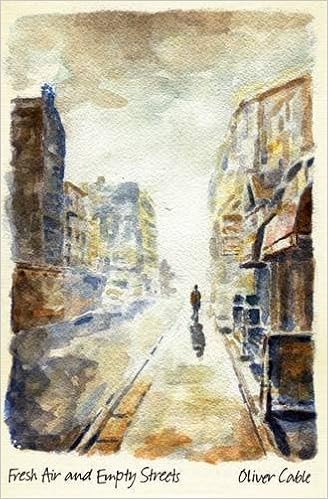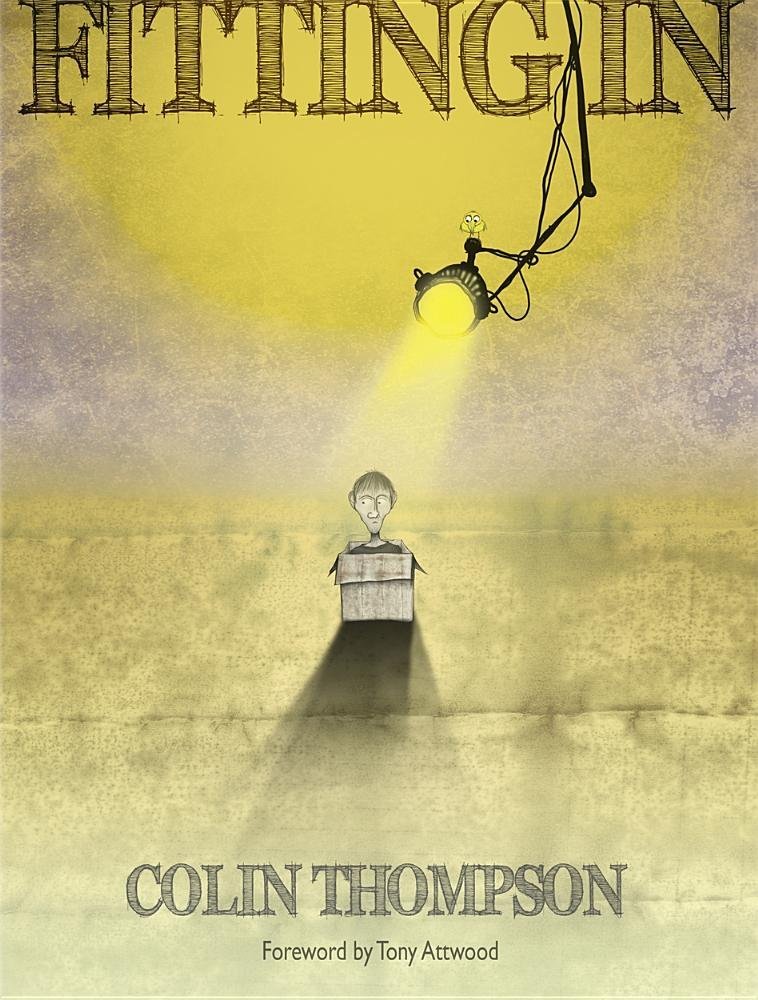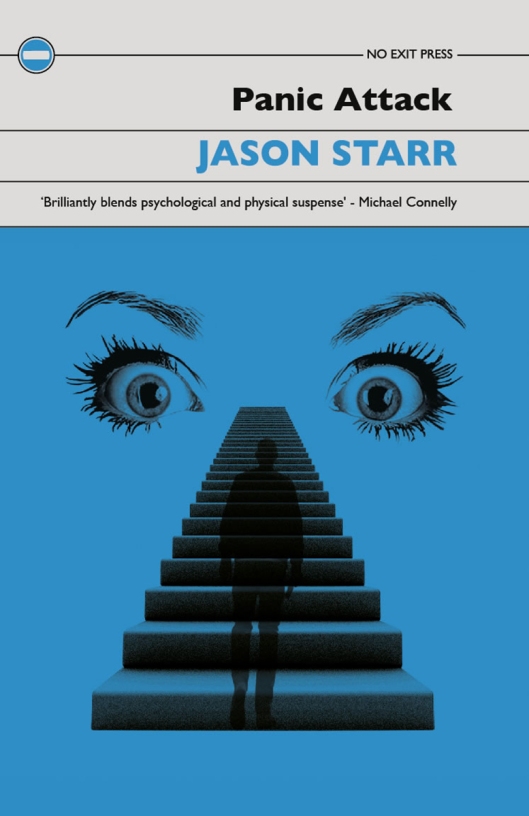Michele Seminara drops by to read from and talk about her poetry book Engraft and how it came together, the variety of forms and how she uses the page, about writing through Shakespeare, Kafka and other authors, about the tension between…
A review of The Trespasser by Tana French
 Despite the rapid pace at which I tore through this novel—it was just too good to put down—the actual solving of the crime is a slow, suspenseful rise and fall. Reading The Trespasser feels like playing Chutes and Ladders. I work my way towards the goal, find something exciting that lets me climb up the ladder toward the answers, then hit a snag and slide right back to the beginning,
Despite the rapid pace at which I tore through this novel—it was just too good to put down—the actual solving of the crime is a slow, suspenseful rise and fall. Reading The Trespasser feels like playing Chutes and Ladders. I work my way towards the goal, find something exciting that lets me climb up the ladder toward the answers, then hit a snag and slide right back to the beginning,
A review of Growing Dark: Selected Stories by Dennis Must
 Dennis Must’s Going Dark is a succession of 17 short stories. Must’s writing is expressive, as he approaches the numerous stages of life we all share in the transition from youth to maturity to the inevitable death that awaits us all. The lives in these stories are unrelated, and yet very much the same. The work is at once a multilayered thought provoking psychological frolic in addition to being a deeply seated thoughtful work. Whatever the overview or leitmotif, each portrayal in this work ultimately goes dark as Must probes deep within the core of his intricate, complex characters.
Dennis Must’s Going Dark is a succession of 17 short stories. Must’s writing is expressive, as he approaches the numerous stages of life we all share in the transition from youth to maturity to the inevitable death that awaits us all. The lives in these stories are unrelated, and yet very much the same. The work is at once a multilayered thought provoking psychological frolic in addition to being a deeply seated thoughtful work. Whatever the overview or leitmotif, each portrayal in this work ultimately goes dark as Must probes deep within the core of his intricate, complex characters.
A review of The Kiss and Other Stories by Anton Chekhov
 These classic stories have been cast in wonderfully fresh translations by Hugh Aplin. To start with, let me say that it is an attractive package overall: seven stories, an account of Chekhov’s life and his works (the plays as well as the books), a fair few photographs of Chekhov and family, and a select secondary bibliography (to which should be added Rosamund Bartlett’s outstanding biographical work Chekhov: Scenes from a Life).
These classic stories have been cast in wonderfully fresh translations by Hugh Aplin. To start with, let me say that it is an attractive package overall: seven stories, an account of Chekhov’s life and his works (the plays as well as the books), a fair few photographs of Chekhov and family, and a select secondary bibliography (to which should be added Rosamund Bartlett’s outstanding biographical work Chekhov: Scenes from a Life).
A review of The Abecedarium of the Artist’s Death by Moussa Kone
 Kone’s drawings are beautifully composed and are not without a healthy dollop of black humour (e.g. ‘I is for Ingrid who trusted her friends…’) but for the most part they are quirky and amusing rather than disquieting, as is almost always the case with Gorey. They will raise a wry smile, certainly, but they won’t put you on edge as Gorey’s drawings are wont to do.
Kone’s drawings are beautifully composed and are not without a healthy dollop of black humour (e.g. ‘I is for Ingrid who trusted her friends…’) but for the most part they are quirky and amusing rather than disquieting, as is almost always the case with Gorey. They will raise a wry smile, certainly, but they won’t put you on edge as Gorey’s drawings are wont to do.
A review of The Joyce Girl by Annabel Abbs
 From the beginning to the end The Joyce Girl is an enchanting tale, beautifully written. It drew me in and wouldn’t let go; I was caught and trapped right up to the epilogue. And what a cast of characters … their names kept dropping from this book like exotic fruits, starting with James Augustine Aloysius Joyce, Samuel Beckett, Madam Egorova, Alexander Calder, Nijinsky, Scott Fitzgerald, Zelda Fitzgerald, Stella Steyn, Thomas McGreevy, Pablo Picasso, Dr Carl Gustav Jung, Gertrude Stein, Margaret Morris, John O’Sullivan, Isadora Duncan, and Stirling Calder all get a mention.
From the beginning to the end The Joyce Girl is an enchanting tale, beautifully written. It drew me in and wouldn’t let go; I was caught and trapped right up to the epilogue. And what a cast of characters … their names kept dropping from this book like exotic fruits, starting with James Augustine Aloysius Joyce, Samuel Beckett, Madam Egorova, Alexander Calder, Nijinsky, Scott Fitzgerald, Zelda Fitzgerald, Stella Steyn, Thomas McGreevy, Pablo Picasso, Dr Carl Gustav Jung, Gertrude Stein, Margaret Morris, John O’Sullivan, Isadora Duncan, and Stirling Calder all get a mention.
Fresh Air and Empty Streets by Oliver Cable
 The author’s descriptive passages of Paris are so powerful and illuminating that as Felix wanders through the City of Light it feels like we are right there beside him and when he stumbles his way into a romantic interlude with the beautiful waitress Senna, we can be thankful that the author allows us to turn away at the right moments. As his fumbling turns to manliness Felix begins to understand something about love and relationships and his attitude towards his father alters.
The author’s descriptive passages of Paris are so powerful and illuminating that as Felix wanders through the City of Light it feels like we are right there beside him and when he stumbles his way into a romantic interlude with the beautiful waitress Senna, we can be thankful that the author allows us to turn away at the right moments. As his fumbling turns to manliness Felix begins to understand something about love and relationships and his attitude towards his father alters.
A review of Fitting In by Colin Thompson
 The clever storytelling of Colin Thompson in Fitting In somehow binds itself to you and makes you fully engaged with the pages in front of you. It invites you to sit and read a page or two and then ponder what you just read. My eyes were opened to a life completely different from my own. This is the beauty of memoirs. They pull you out of the self-centered life you may be living and make you engage with someone else’s life story. As I read, I saw the raw and coarse pain of depression and the desire to fit in.
The clever storytelling of Colin Thompson in Fitting In somehow binds itself to you and makes you fully engaged with the pages in front of you. It invites you to sit and read a page or two and then ponder what you just read. My eyes were opened to a life completely different from my own. This is the beauty of memoirs. They pull you out of the self-centered life you may be living and make you engage with someone else’s life story. As I read, I saw the raw and coarse pain of depression and the desire to fit in.
A review of The Birdman’s Wife by Melissa Ashley
 The author has researched her material thoroughly, even becoming a volunteer at the Queensland Museum and learning how to prepare ornithological specimens. This makes her descriptions of the preparations of the birds in her novel thoroughly convincing, as when Elizabeth is required to prepare the body of a brush turkey for its skeleton to be displayed. And the descriptions of her drawing and painting the prepared birds sometimes take the breath away, as with the quetzal, who ‘sported iridescent sheens in its plumage, like silk from China, gossamer and spider’s webs, droplets of water catching the light’ (94).
The author has researched her material thoroughly, even becoming a volunteer at the Queensland Museum and learning how to prepare ornithological specimens. This makes her descriptions of the preparations of the birds in her novel thoroughly convincing, as when Elizabeth is required to prepare the body of a brush turkey for its skeleton to be displayed. And the descriptions of her drawing and painting the prepared birds sometimes take the breath away, as with the quetzal, who ‘sported iridescent sheens in its plumage, like silk from China, gossamer and spider’s webs, droplets of water catching the light’ (94).
A review of Panic Attack by Jason Starr
 Starr’s novel is wholly contemporary – we are in twenty first century New York, no question – but it also harks back to post-war noir and Jacobin revenge dramas of yore. Sin is indelible, so too self-delusion and self-justification. These people – Adam and Johnny, Dana the wife and Marissa the daughter – cannot become better.
Starr’s novel is wholly contemporary – we are in twenty first century New York, no question – but it also harks back to post-war noir and Jacobin revenge dramas of yore. Sin is indelible, so too self-delusion and self-justification. These people – Adam and Johnny, Dana the wife and Marissa the daughter – cannot become better.